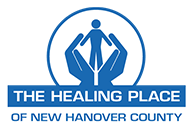The Healing Place provides food, shelter, clothing, and recovery services at no cost to the client. We want there to be as few barriers to recovery as possible.
Detox
The primary purpose of detox is to detoxify and stabilize an individual from drugs and/or alcohol. The secondary purpose of detox is to prepare the client to enter into our long-term recovery program and to a life in recovery. This is when the clients begin to identify a common problem and a common solution.
Motivational Track – SOBER180SM
Clients accepted into The Healing Place’s long-term recovery program begin the program in the Safe Haven portion of the program. During this 14-day period, clients feel more protected by remaining on property except for court dates and medical appointments. While in Safe Haven, clients attend approximately 80 classes and 12-Step meetings while they become acclimated to The Healing Place environment. Safe Haven clients are housed with those who have already begun the motivational phase of our program and begin bonding with others in the program.
In the motivational phase, called Off the Streets (OTS), clients work with peers in similar circumstances to motivate one another to adopt social skills and learn core principles central to Alcoholics Anonymous and Narcotics Anonymous. While in OTS, our clients come to understand the concept of the physical allergy. Day classes are held off campus at a Healing Center. These classes, which use the SOBER180 curriculum, are where clients begin accepting their self-centered disease problem and its spiritual solution. Our clients also learn the basics of responsibility and move away from a “street” mentality. Along the way, they make a commitment to the solution.
Recovery Stage – SOBER180SM
The recovery stage, called Phase I, is where clients learn how to apply the 12 Steps of Alcoholics Anonymous and Narcotics Anonymous in their lives with the SOBER180 curriculum. This curriculum consists of classes and written assignments. All clients are assisted throughout this process by Peer Mentors, who are men and women who recently completed The Healing Place recovery program.
The first part of Phase I stresses strong personal accountability – being on time for classes and meetings, completing job assignments, etc. – and encourages clients to look at their own behavior. This is facilitated at the Community meeting.
The second part of Phase I focuses on interpersonal skills, stressing concern and accountability for others in the program. This is achieved through role modeling, holding peers accountable for their actions, and giving support to others.
Continuing Care
Once a client completes the program, he or she can choose to become a Peer Mentor. Peer Mentors volunteer to serve as leaders and role models for those who are newer in the program. Peer Mentors teach classes, monitor assignments, coordinate job assignments, and work one-on-one with individuals moving through the recovery process. Peer Mentors demonstrate The Healing Place philosophy that the best solution is one alcoholic or addict reaching back to help another on the journey to recovery.
Clients who complete our program and choose not to become a Peer Mentor are able to continue to live on property at a small cost while finding work, allowing them to transition slowly back into life. All clients who complete our program receive support and assistance from our continuing care staff, including help with finding employment, housing, and navigating legal and medical issues.
